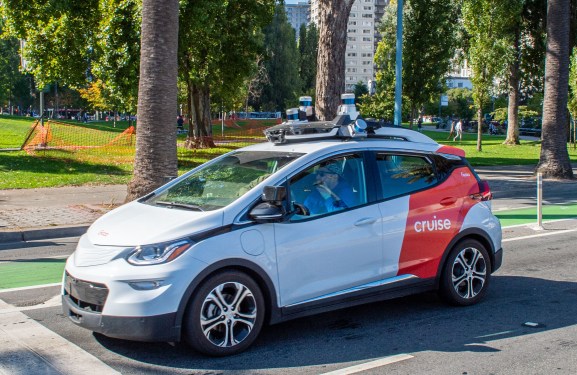
GM’s Cruise to Pay $500,000 Fine to DOJ for Submitting False Report
In a significant development, Cruise, the autonomous vehicle unit of General Motors, has acknowledged submitting a false report with the intention of influencing a federal investigation into a safety incident that occurred last year. As part of a deferred prosecution agreement with the Department of Justice (DOJ), the company will pay a $500,000 criminal fine.
The Incident and Its Aftermath
The safety incident in question took place in October when a Cruise robotaxi ran over a pedestrian who had been flung into its path after being hit by a human-driven car. The autonomous vehicle then proceeded to drag the pedestrian some 20 feet in an attempt to pull over, information that Cruise did not immediately share with regulators.
This omission of crucial information has led to several state and federal fines for Cruise. In June, the company agreed to pay $112,500 to the California Public Utilities Commission to avoid litigation and bring the dispute "to a close." Three months later, the National Highway Traffic Safety Administration (NHTSA) slapped Cruise with a $1.5 million penalty.
Investigations and Fines
The Securities and Exchange Commission is also investigating the incident. As part of its agreement with the DOJ, Cruise must work with government investigations, implement a safety compliance program, and provide the U.S. Attorney’s Office with annual reports on implementation and remediation.
"Cruise will comply with the requirements set forth in the agreement, as we continue to move forward under new leadership and with a firm commitment to transparency with our regulators," said Craig Glidden, president and chief administrative officer at Cruise, in a statement.
If Cruise fails to meet its obligations during the three-year agreement period, the government can proceed with prosecution of the charged offense. "Today’s deferred prosecution agreement holds Cruise and its employees accountable for their lack of candor in a federal regulatory compliance action," said Cory LeGars, special agent-in-charge at a U.S. Department of Transportation oversight agency.
Consequences for Cruise
Cruise has taken many hits — financial and otherwise — since the incident. The company lost its permits to operate commercially in California and grounded its fleet around the country. Parent company General Motors slashed Cruise expenditures and took a firmer hand in controlling the company, which included a 24% layoff of its workforce and the departures of top leadership, including co-founder and CEO Kyle Vogt.
While Cruise resolved its investigation into this incident with NHTSA, the agency is still investigating whether Cruise’s robotaxis deal with pedestrians safely enough. In August, Cruise recalled nearly 1,200 robotaxis to resolve an issue with unexpected braking. Despite these setbacks, Cruise continues trying to make a comeback.
Cruise’s Relaunch Efforts
The company has relaunched supervised autonomous driving in the Bay Area, Dallas, and Phoenix, and has a deal with Uber to bring Cruise robotaxis to the ride-hail app in 2025. This article has been updated to include a statement from Cruise.
Background on Cruise
Cruise was founded in 2013 by Kyle Vogt, a former MIT student, with the goal of developing autonomous vehicles that could be used for various purposes, including ride-sharing and logistics. In 2016, General Motors acquired Cruise, which has since become a subsidiary of the parent company.
Reactions and Implications
The deferred prosecution agreement between Cruise and the DOJ is a significant development in the world of autonomous vehicles. It highlights the importance of transparency and accountability in the industry, particularly when it comes to safety incidents.
"Cruise’s actions demonstrate the need for robust regulatory oversight and enforcement mechanisms," said [name], a transportation expert. "This agreement sends a clear message that companies must prioritize transparency and accountability in their dealings with regulators."
Conclusion
The incident and its aftermath have had far-reaching consequences for Cruise, including financial penalties, loss of permits, and changes in leadership. However, the company continues to push forward, aiming to make autonomous vehicles a reality.
As the industry continues to evolve, it is essential that companies like Cruise prioritize transparency and accountability. The deferred prosecution agreement between Cruise and the DOJ serves as a reminder of the importance of these values in the world of autonomous vehicles.
Related Stories
- Toyota’s next-generation cars will be built with Nvidia supercomputers and operating system
- The US just added Tencent — which backs US startups — to its list of ‘Chinese military’ companies
- Sony and Honda reveal Afeela, their joint EV brand, at CES


